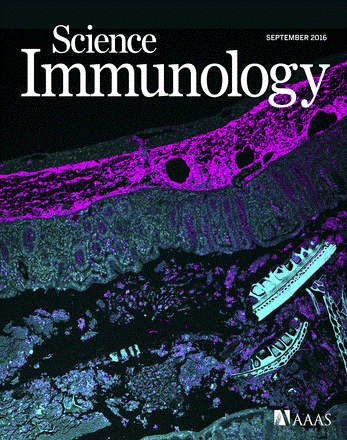By  Michael Hughes, Research Associate in McNagny Lab
Michael Hughes, Research Associate in McNagny Lab
The incidence of Crohn’s disease (CD) and ulcerative colitis (UC) (collectively known as inflammatory bowel disease (IBD)) in Canada is among the highest in the world1. Most troubling, the number of children in Canada with IBD has doubled in the last 20 years1. A confluence of environmental factors, such as city dwelling in industrialized Western nations, may be at least partly to blame for this rapid rise in IBD1.
IBD is a life-long, chronic inflammatory disease that can be severely debilitating if not controlled. Frequent bouts of inflammation cause permanent scarring (fibrosis), which can interfere with nutrient absorption and excretion functions of the intestine1. Currently, surgery is the only way to remove scarred tissue. Consequently, approximately 70% of patients with CD and 30% with UC will require surgery at least once in their lifetime1. Removing scar tissue in the gut is not a trivial surgery; considerable tracts of large bowel are usually removed, as well as sections of the ileum (critical for nutrient absorption). Going under the knife for a patient with IBD frequently necessitates a drastic change in lifestyle1.

Cover of the September 2016 issue of Science Immunology featuring one of Bernard’s fluorescent microscopy images showing a section of a mouse cecum stained for collagen (magenta) and nuclei (blue). Photo Credit: Bernard C. Lo (2016).
Bernard Lo, a PhD candidate in the research group led by CBR Principal Investigator Kelly McNagny, discovered a novel cellular pathway that promotes intestinal fibrosis in a CD-like mouse model2. His findings highlight a therapeutic target for the development of drugs that may block fibrotic processes and reduce the need for surgery in patients with IBD.
In his work, recently published in September’s issue of Science Immunology, Bernard used a Salmonella-induced mouse model of gut fibrosis that shares many of the pathological features of human CD, to demonstrate that group 3 innate lymphoid cells (ILC3s) are required for intestinal fibrosis2.
He also found that a transcription factor, retinoic acid receptor-related orphan receptor-alpha (RORα), controls the function of these lymphoid cells in the gut2,3. As the gene name suggests, the ligand of RORα has not been formally identified. However, potent small-molecule synthetic antagonists and agonists are known, making RORα a viable therapeutic target for new drugs that can block fibrotic mechanisms in CD.
Bernard’s next step is to demonstrate the ability of existing RORα-antagonists in vivo to block the fibrotic process. Success of the next generation candidate drugs will hopefully spare patients with IBD from going under the knife!


